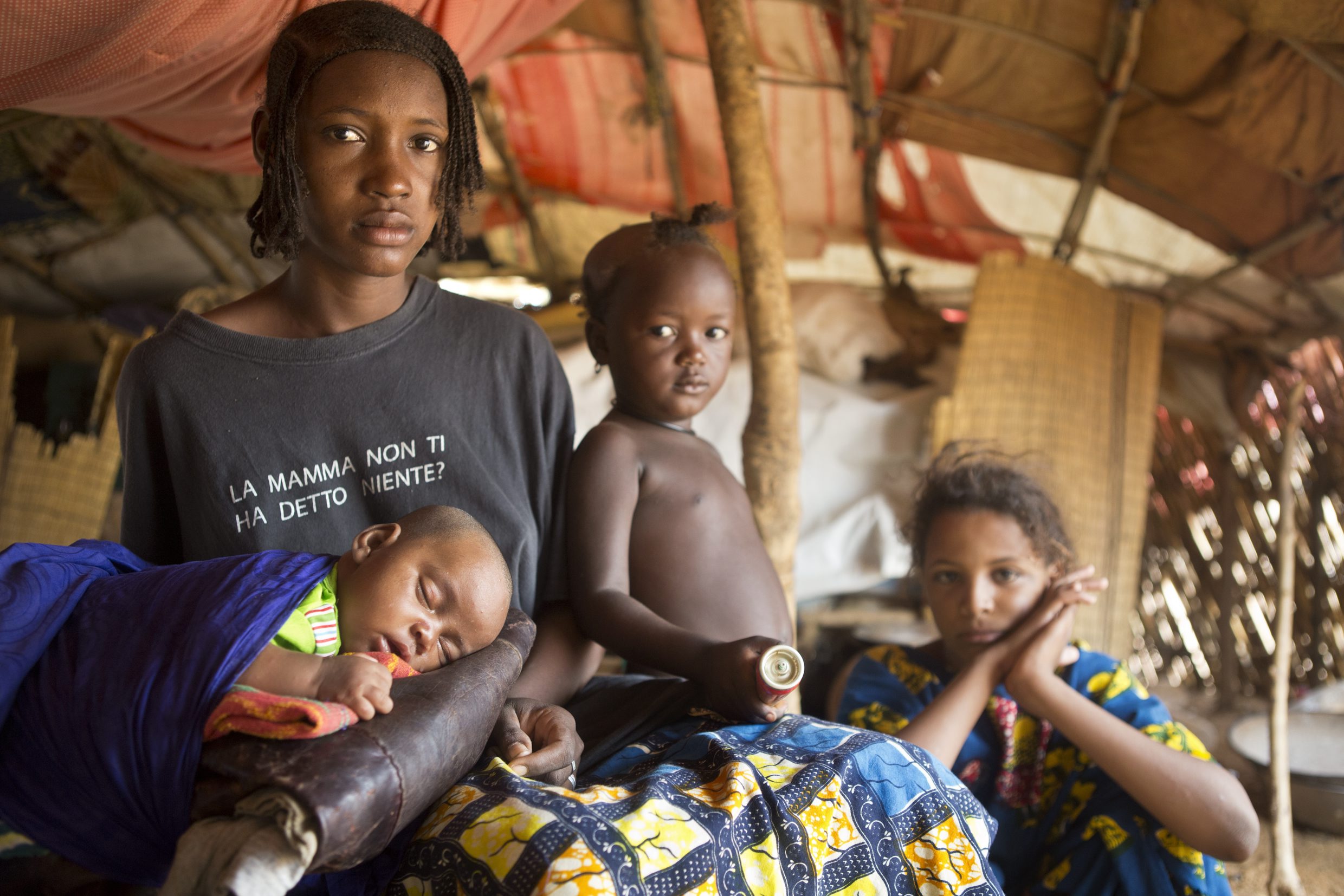Senior UNHCR official criticizes not-on-my-doorstep attitudes towards refugees, displaced
Senior UNHCR official criticizes not-on-my-doorstep attitudes towards refugees, displaced
UNHCR Assistant High Commissioner for Protection Erika Feller appealed today for strengthened political will to help the world's more than 42 million refugees, asylum-seekers, internally displaced and stateless people, amid a recent rise in new humanitarian emergencies in Africa and the Middle East.
In a speech to the annual meeting of UNHCR's governing Executive Committee (ExCom), Feller listed drawn-out displacement situations, insecure settings, difficulties in helping acutely vulnerable people, and funding shortages as the major current obstacles to quality protection.
"UNHCR still has to make efforts to improve its own response. By the same token political will is not consistently enough behind protection," she said. "This is disturbingly evidenced in a prevailing attitude in a number of states to the effect: 'Yes, we sympathize with your plight, but resolve it please elsewhere'."
The statement of the Assistant High Commissioner for Protection to ExCom is one of the key speeches to the annual meeting, setting out UNHCR's principal current challenges in efforts to help the world's forcibly displaced and stateless people.
Feller used the example of Mali, a major humanitarian emergency for UNHCR, to highlight the difficulties involved in providing quality protection to individuals among the 700,000 people worldwide who have become refugees so far this year. In countries neighbouring Mali the proximity of refugee sites to the insecure border, physical difficulties in accessing and doing protection monitoring of refugees spread across wide areas, tensions among different displaced groups and shortages of funds, are combining to ensure that refugees get nothing more than basic life-saving help, she said. In such environments preventing problems such as military recruitment of children, child labour or sexual exploitation of children is meanwhile becoming more difficult.
Feller also spoke of the need to do more to help refugees living in urban settings, where people can be at risk of criminal exploitation and other illegal activities, and for refugees who fall prey to people smuggling or other risky means of crossing land or sea frontiers.
"Some very positive efforts are under way by states to collaborate on new regional strategies around these issues," she said. "This said, regional cooperation is not an end in itself. Its aims must include stronger national asylum systems - not their replacement - and for States to share more equitably the burdens and responsibilities of protecting refugees."
This year has so far seen mass displacement in areas of Africa and the Middle East, principally from conflicts in Syria, South Sudan/Sudan, Mali and Democratic Republic of the Congo. People newly displaced in these areas are an addition to the 42.5 million population of refugees, internally displaced people and asylum-seekers globally.
Feller echoed a call made on Monday by High Commissioner for Refugees António Guterres for states to do more to help those countries that host major refugee populations, including by supporting funding arrangements to support local integration of people who are unable to return home.
She also spoke of the need for more resettlement places as a further solution. Globally, demand for resettlement places currently outstrips availability by a factor of 10 persons for each resettlement place available.
Feller spoke at length of the need for more concerted action to reduce protection risks for specific vulnerable groups, including the growing numbers of unaccompanied refugee children worldwide, disabled people and people fleeing persecution because of their sexual orientation and gender identity. She also spoke of the problems faced by children who, as a result of being displaced, lose access to education or who end up being placed in immigration detention. Girls and women, she said, often have particular difficulties.
"Situations of forced displacement are not gender neutral; they affect women and girls disproportionately. Exposure to rape, human trafficking, survival sex, in tandem with lack of documentation and exclusion from support and services, is commonplace," she said, adding that UNHCR was working to fight impunity by strengthening its work in preventing sexual- or gender-based violence, and ensuring that justice is more accessible for victims.
"Individual plight and assisting and protecting those in need must be approached in a way which places a primacy on human compassion, but also keeps the broader connections clearly in focus," she said. "Refugee work is aid and development. It is a legal world of Conventions, human rights, national laws and asylum claims. It is a form of migration management work, with resettlement at its centre. These multifaceted dimensions are at once local, international and political, embedded firmly in an environment of causes, effects and unequal burden-sharing. Capturing and balancing this reality while doing justice to the individual narratives is one of the most challenging aspects of refugee protection."
The full speech of Assistant High Commissioner Erika Feller can be read here.


